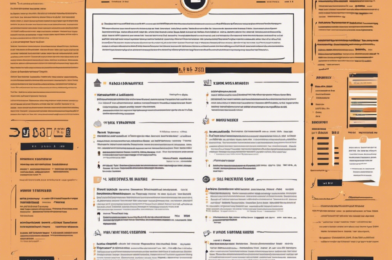Personal branding is an essential aspect of career development in today’s competitive job market. It involves effectively communicating your unique professional value and skills to potential employers, clients, or partners. In a world where first impressions are often made online, personal branding has become even more crucial, as individuals now have greater control over how they present themselves to the world.
So, how can you create a strong personal brand that showcases your professional value? It starts with identifying your unique value proposition – the specific skills, expertise, and experiences that set you apart from others in your field. Take time to reflect on your strengths, accomplishments, and the value you can bring to an organization or project. This self-assessment will form the foundation of your personal brand.
Once you’ve identified your unique value, the next step is to build a strong online presence. In today’s digital age, your online profiles are often the first impression you make on potential opportunities. Ensure your LinkedIn profile is up-to-date and optimized with relevant keywords that highlight your skills and expertise. Consider building a personal website or portfolio to showcase your work and provide a more comprehensive overview of your professional background.
Another important aspect of personal branding is networking and building relationships. Attend industry events, join relevant online communities, and engage in conversations on social media. By actively participating in your industry’s ecosystem, you increase your visibility and establish yourself as an engaged and active professional. Mentorship is also a valuable way to enhance your personal brand. Offering mentorship to those earlier in their careers not only benefits them but also reflects well on you, positioning you as an established and respected member of your field.
A powerful tool to elevate your personal brand is content creation. Share your knowledge and insights through blog posts, articles, or videos. This demonstrates your expertise and positions you as a thought leader in your industry. Additionally, public speaking engagements at conferences or events can further showcase your knowledge and enhance your credibility.
Remember, personal branding is an ongoing process, and it’s important to consistently evaluate and update your online presence and professional materials. By investing in your personal brand, you increase your chances of being noticed by the right people, opening doors to new opportunities and career advancements.
Lastly, don’t underestimate the power of authenticity. Be true to yourself and let your unique personality shine through. This will make you more relatable and memorable, and it will help you build a personal brand that feels natural and authentic to who you are. Personal branding is not about creating a fake image but about effectively communicating the value that is inherently yours.






